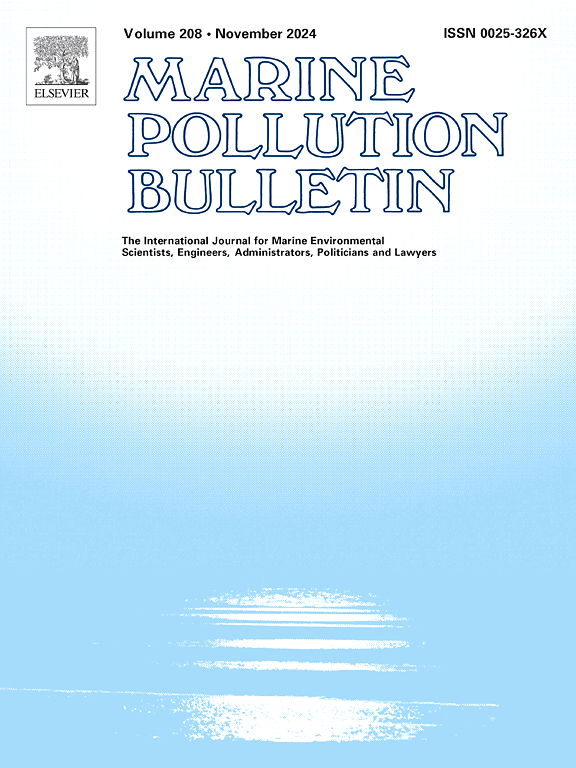低温对海水-原油乳化液形成及稳定性的影响
IF 4.9
3区 环境科学与生态学
Q1 ENVIRONMENTAL SCIENCES
引用次数: 0
摘要
由于体积和粘度的增加,“油中海水”乳液的形成降低了当前溢油响应作业的有效性,例如用撇油器物理回收石油,或用化学分散剂分散石油。在寒冷地区,由于可能出现低于冰点的温度和浮冰,这种情况变得更加严重。低温会增加油的粘度,并冻结夹带的水滴,从而抑制新乳剂的形成,同时稳定已经形成的乳剂。现有的关于近冰点温度下乳化液行为的研究可能低估了极地地区常见的低于冰点的空气温度对油包海水乳化液形成和稳定性的影响。为了解决这个问题,我们研究了乳剂在零下20°C的空气温度下的行为,研究了不同沥青质含量的油。较高的沥青质含量(18 wt%)与乳液稳定性增加相关,但经历过冷冻空气温度的乳液在解冻过程中更容易破裂。在- 20°C处理后,Hibernia乳剂损失了50%的夹带水,而Alaska North Slope乳剂损失了25%。保存在20°C的样品损失要小得多。因此,在极地地区暴露在明显低于零度的温度下的乳剂在解冻时很可能破裂,这将影响溢油响应。本文章由计算机程序翻译,如有差异,请以英文原文为准。

Impact of below-freezing air temperatures on the formation and stability of seawater-crude oil emulsion
The formation of ‘seawater-in-oil’ emulsions reduces the effectiveness of current oil spill response operations such as the physical recovery of oil with skimmers, or oil dispersion with chemical dispersants, due to increases in volume and viscosity. This becomes even more acute in cold regions because of the potential for below-freezing temperatures and floating ice. Low temperatures increase oil viscosity and can freeze entrained water droplets, potentially inhibiting the formation of new emulsions while stabilizing any that have already formed. Existing works on emulsion behavior at near-freezing temperatures may have underestimated the impact of below-freezing air temperatures, common in polar regions, on the formation and stability of seawater-in-oil emulsion. To address this issue, we investigated the behavior of emulsions exposed to below-freezing air temperatures (−20 °C), studying oils with different asphaltene contents. Higher asphaltene content (18 wt%) was correlated with increased emulsion stability, but emulsions that experienced freezing air temperatures were more prone to break during thawing. After −20 °C treatment, Hibernia emulsions lost >50 % of their entrained water, while Alaska North Slope emulsions lost >25 %. Samples kept at 20 °C lost far less. Emulsions exposed to significantly sub-zero temperatures in Polar regions are thus likely to break when they thaw, which will impact oil spill response.
求助全文
通过发布文献求助,成功后即可免费获取论文全文。
去求助
来源期刊

Marine pollution bulletin
环境科学-海洋与淡水生物学
CiteScore
10.20
自引率
15.50%
发文量
1077
审稿时长
68 days
期刊介绍:
Marine Pollution Bulletin is concerned with the rational use of maritime and marine resources in estuaries, the seas and oceans, as well as with documenting marine pollution and introducing new forms of measurement and analysis. A wide range of topics are discussed as news, comment, reviews and research reports, not only on effluent disposal and pollution control, but also on the management, economic aspects and protection of the marine environment in general.
 求助内容:
求助内容: 应助结果提醒方式:
应助结果提醒方式:


